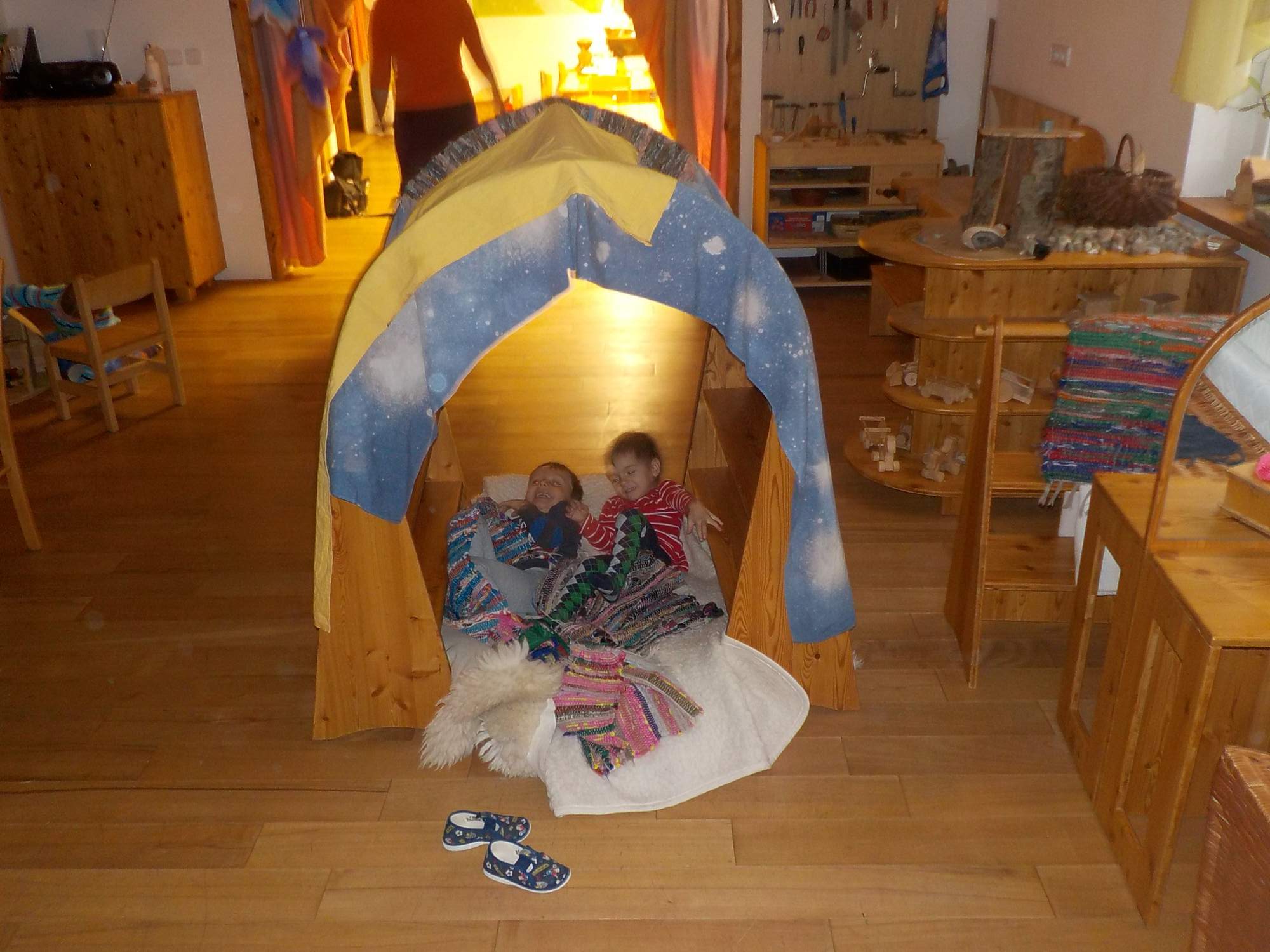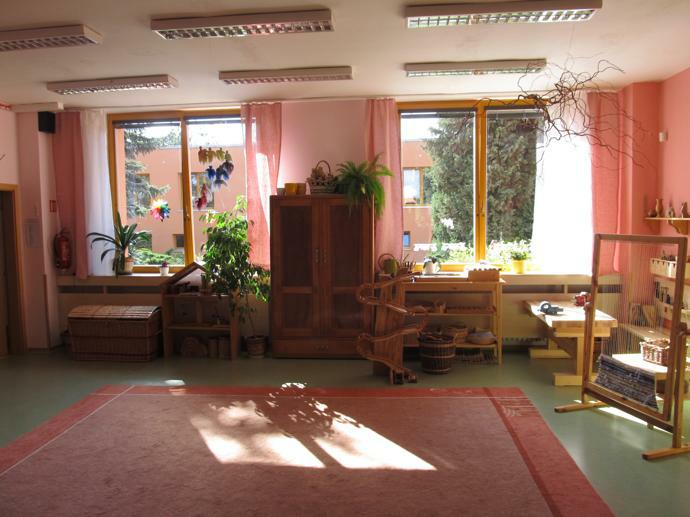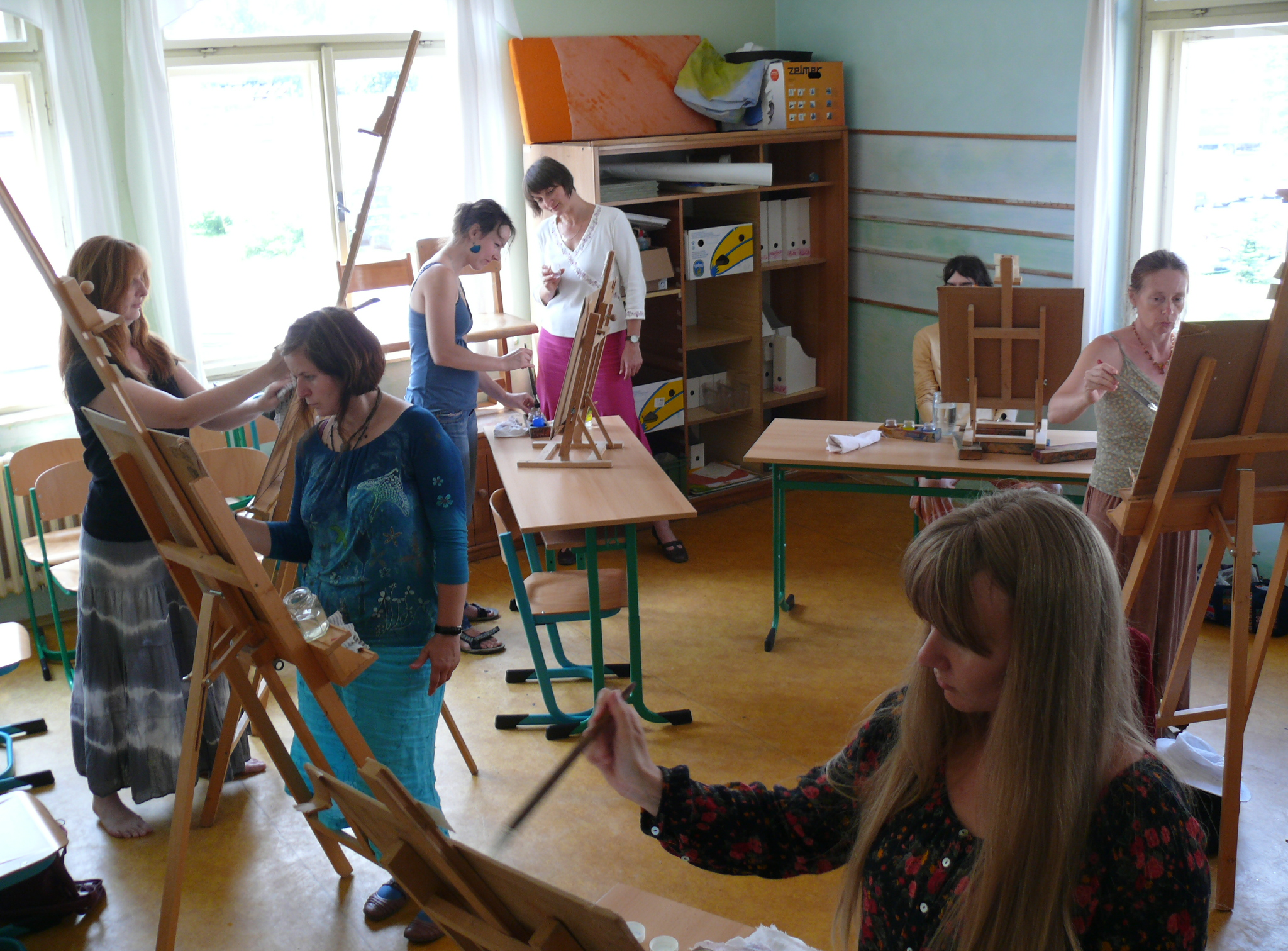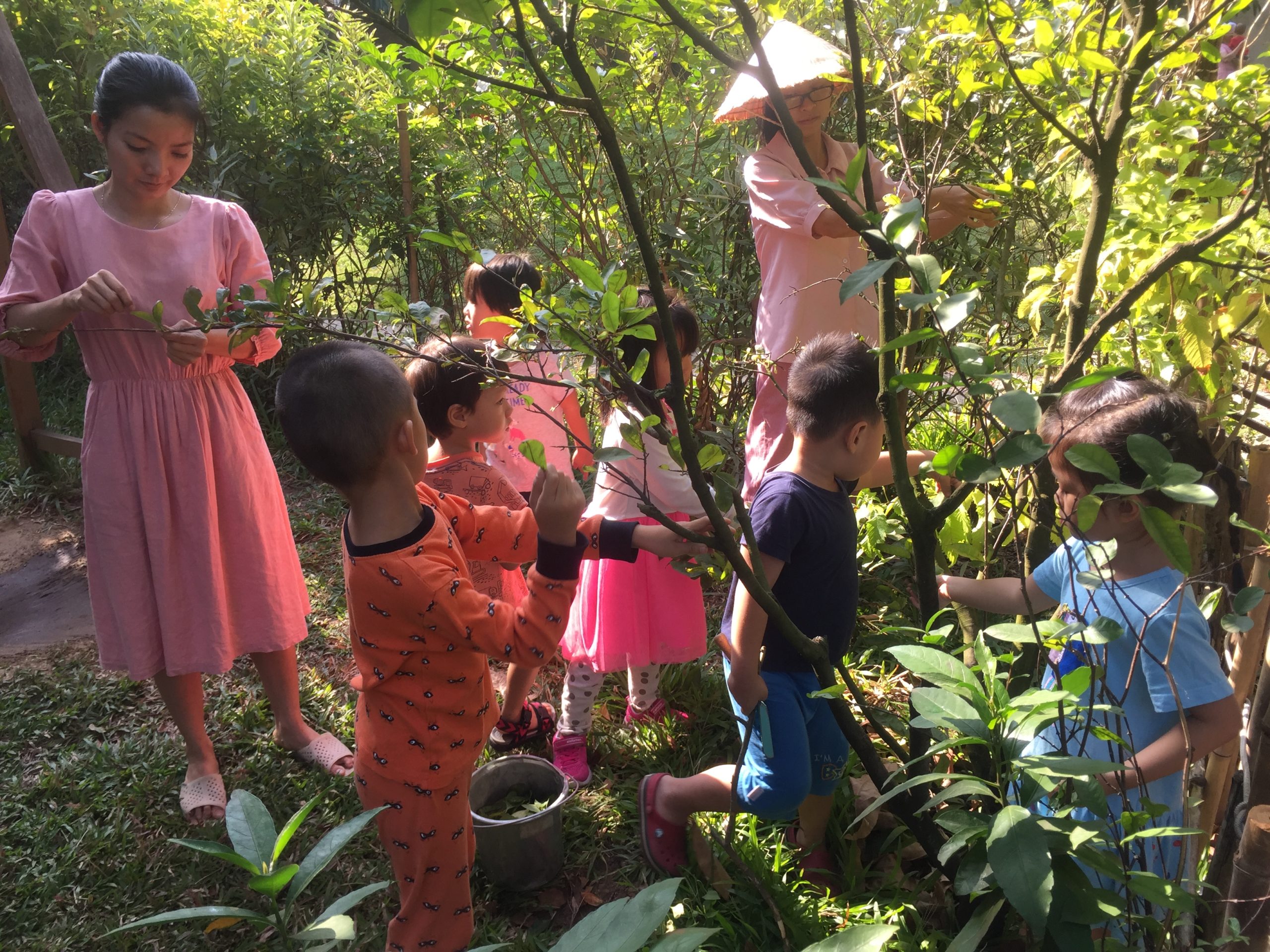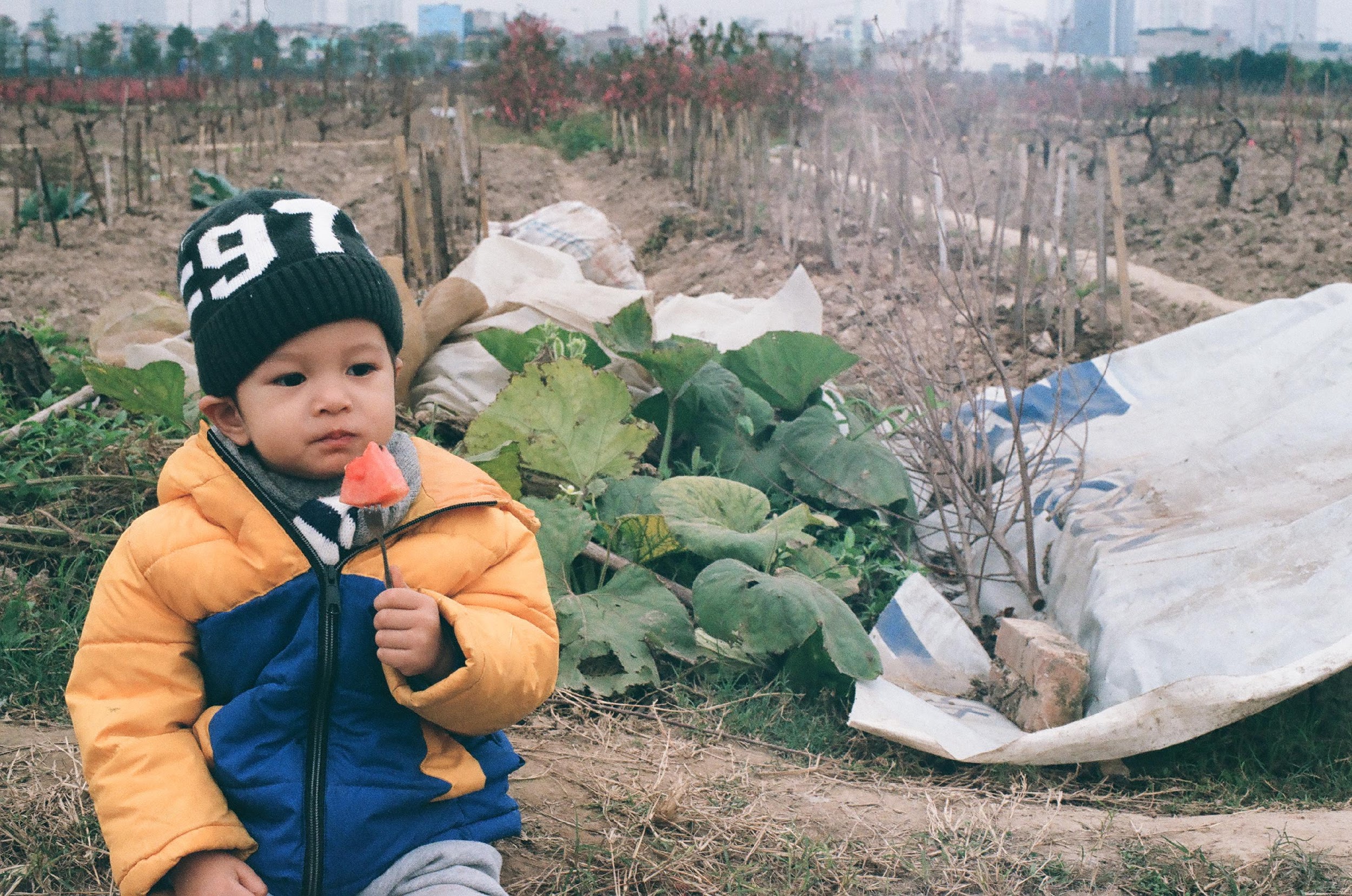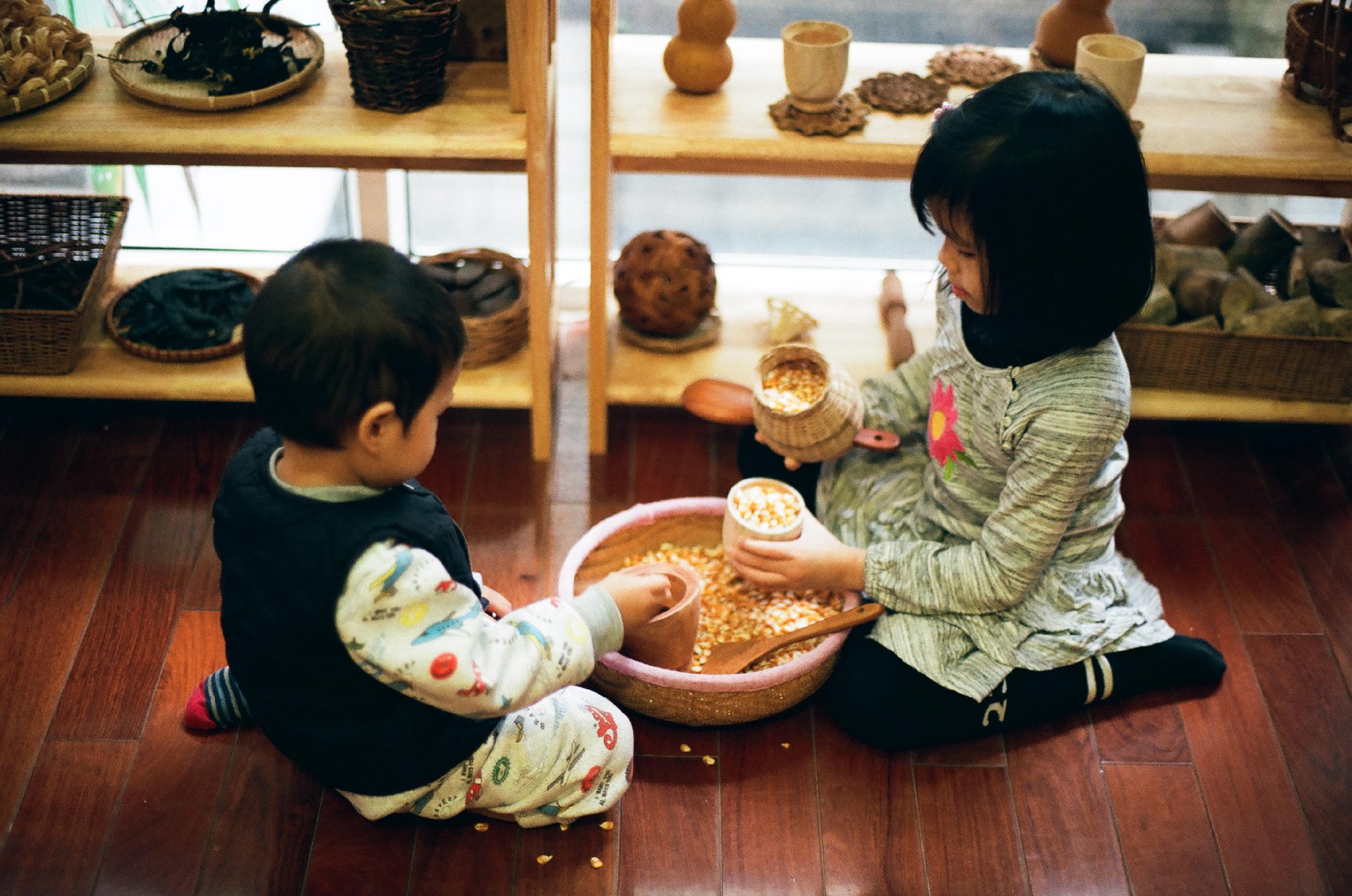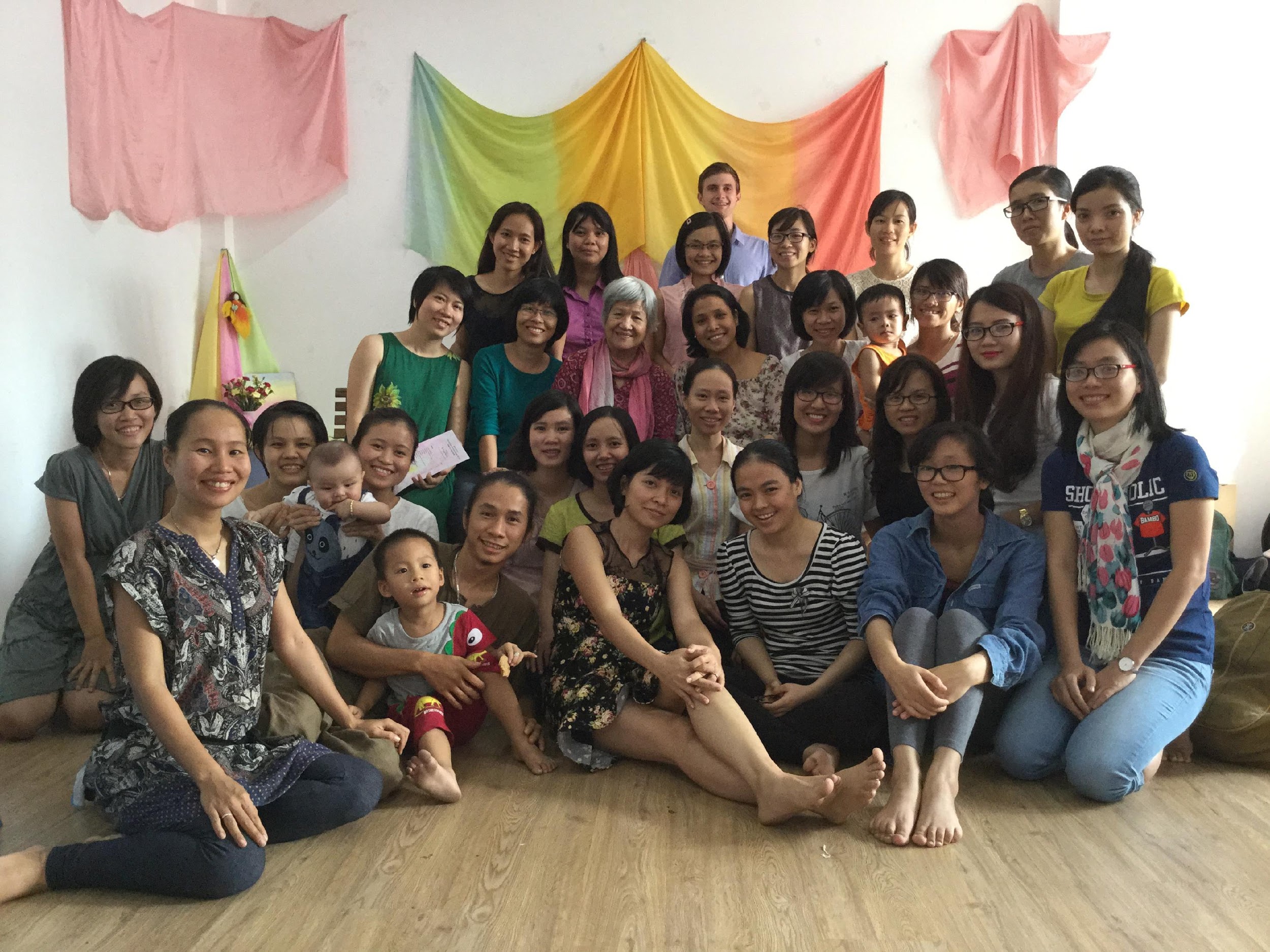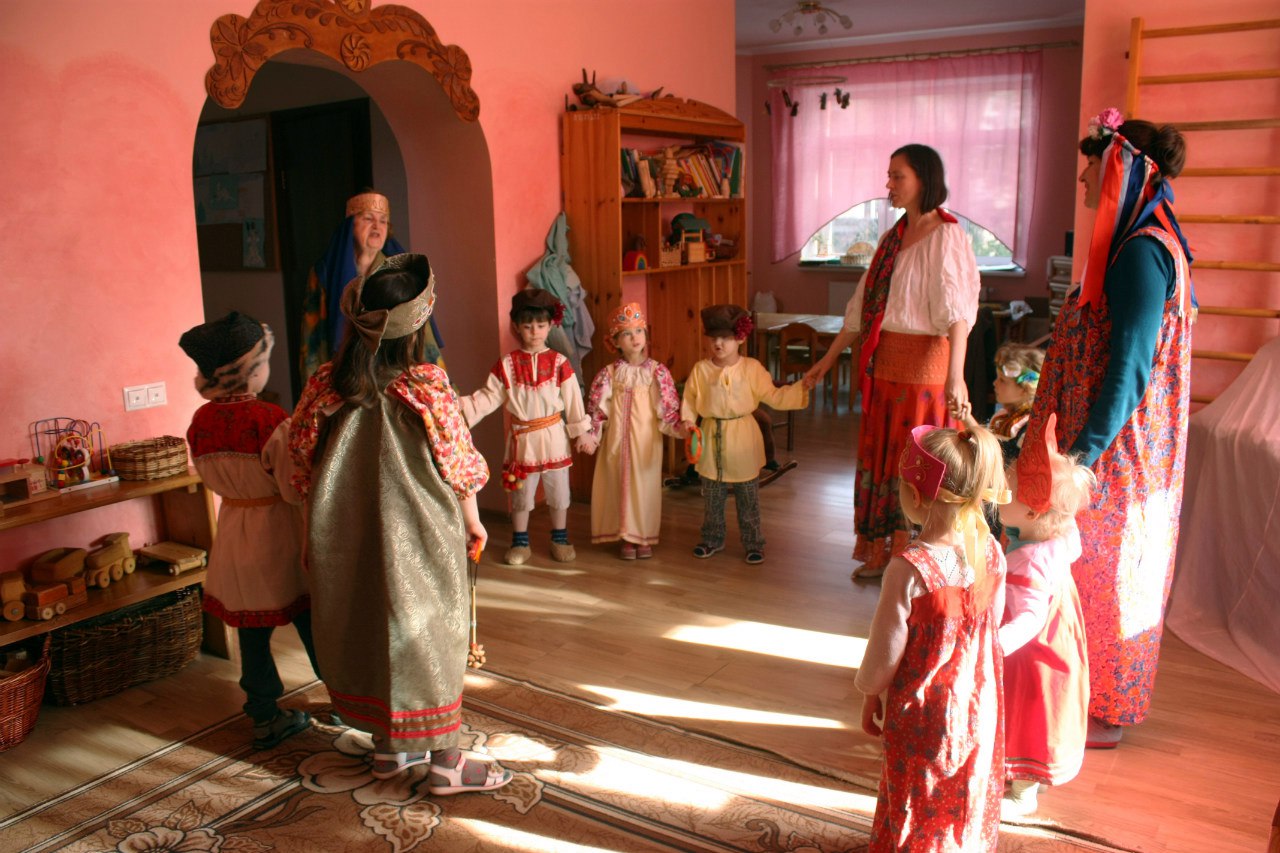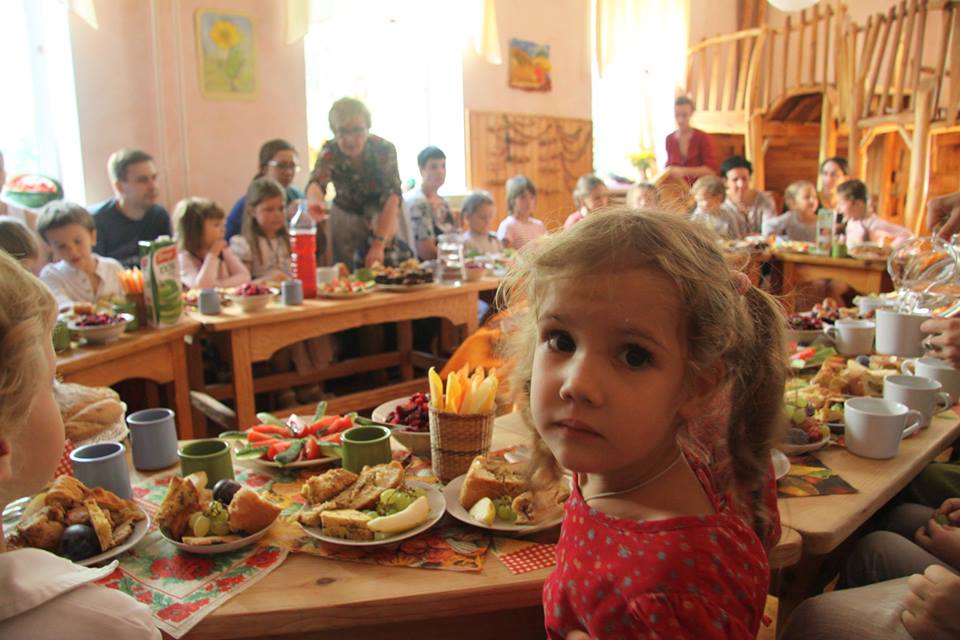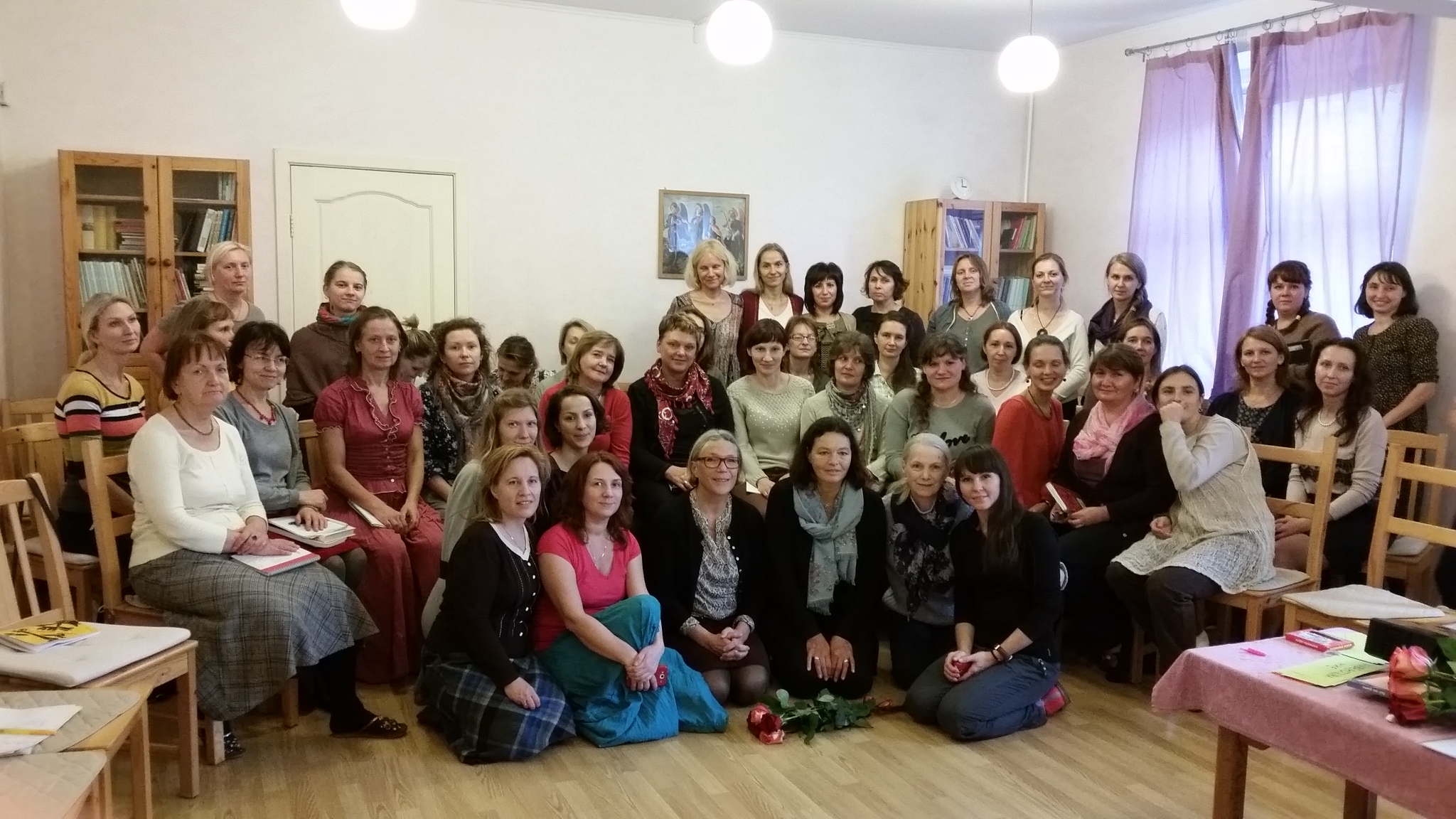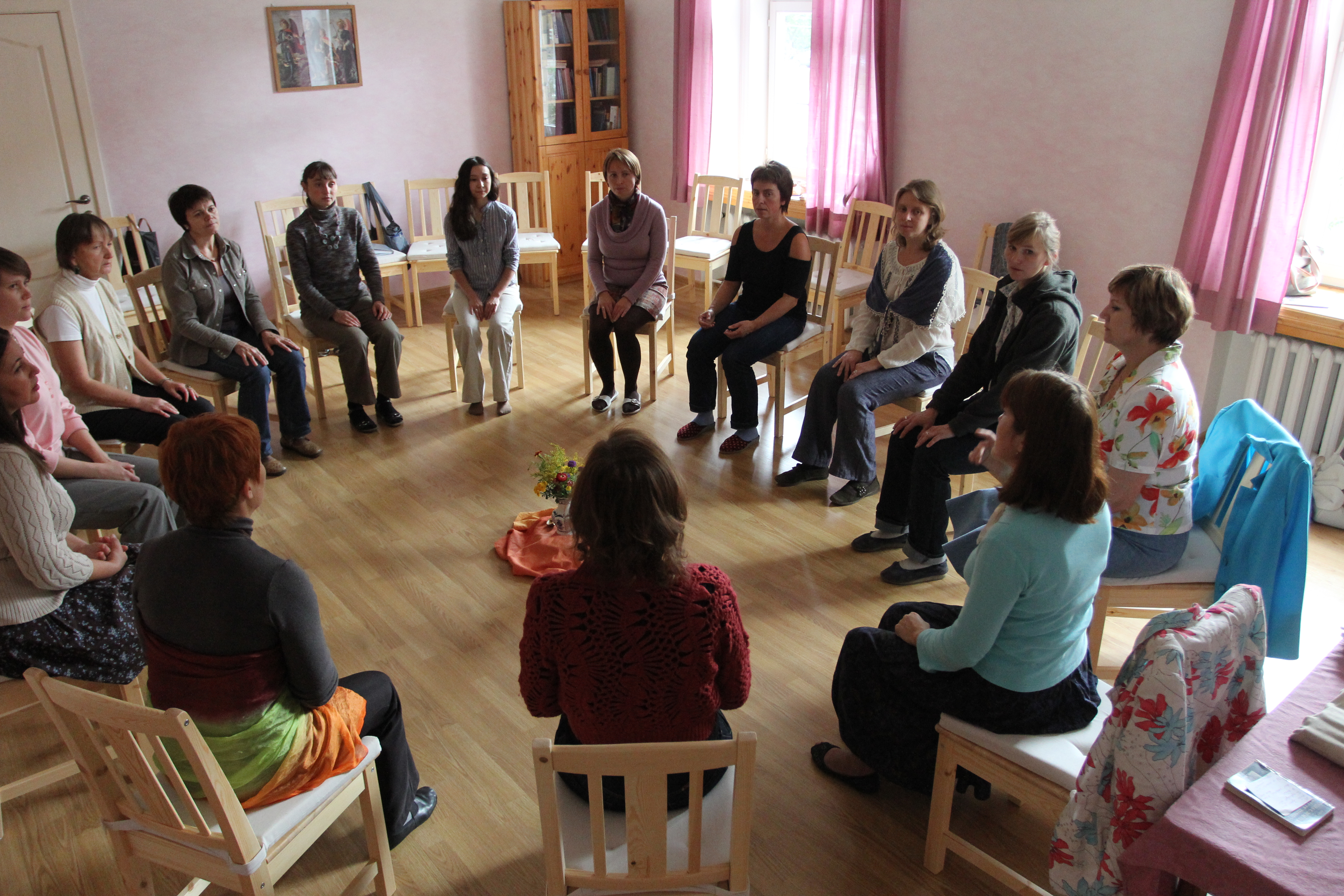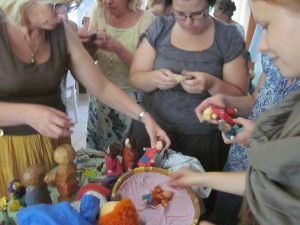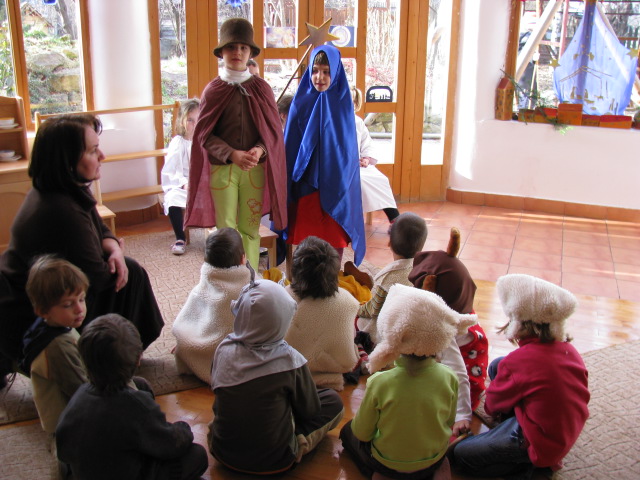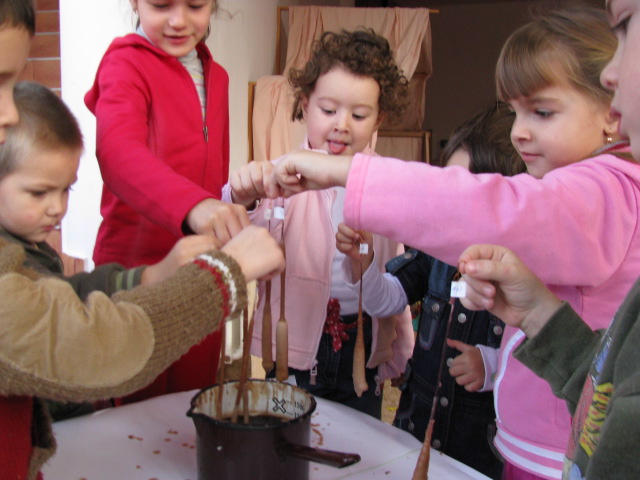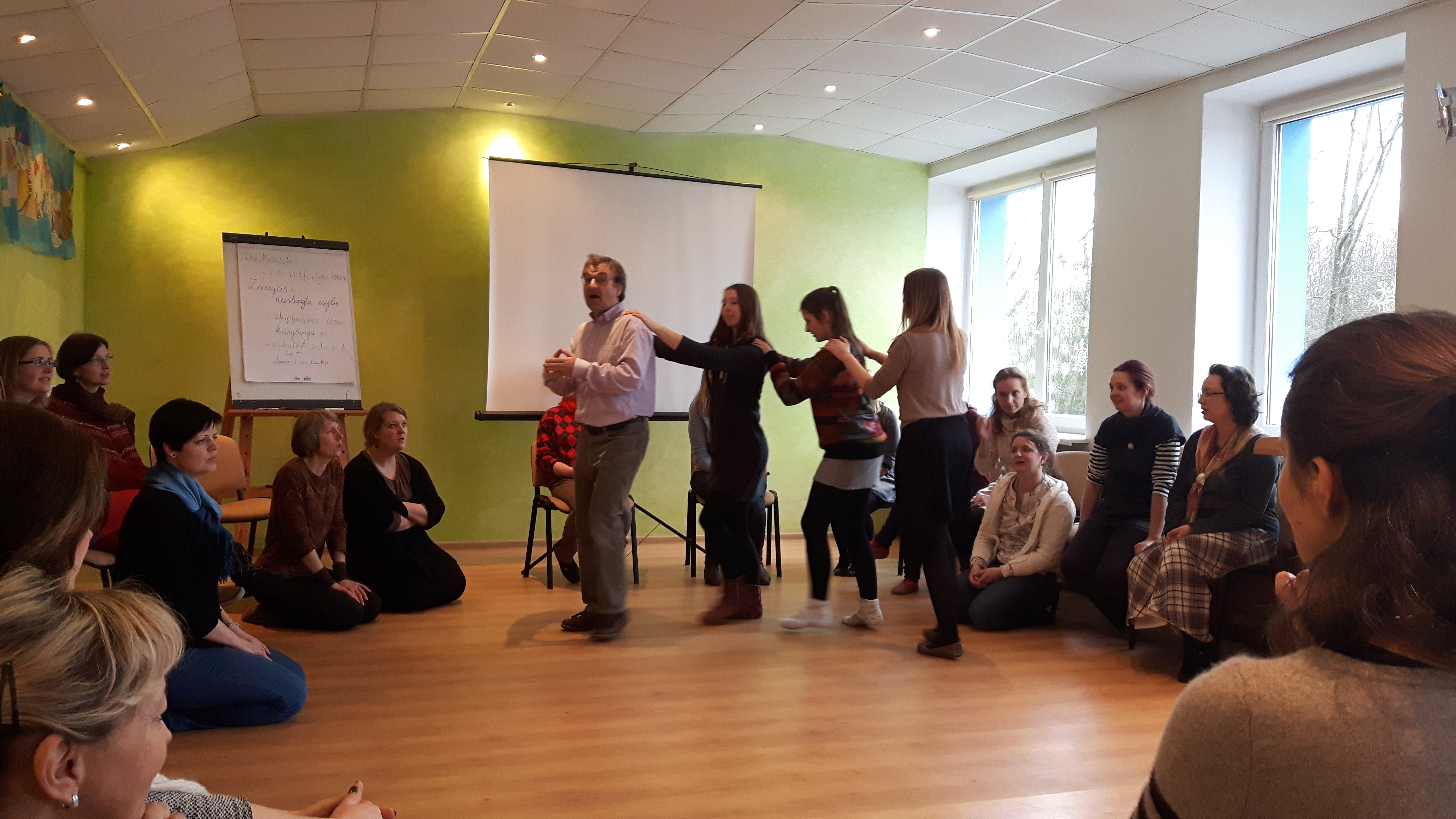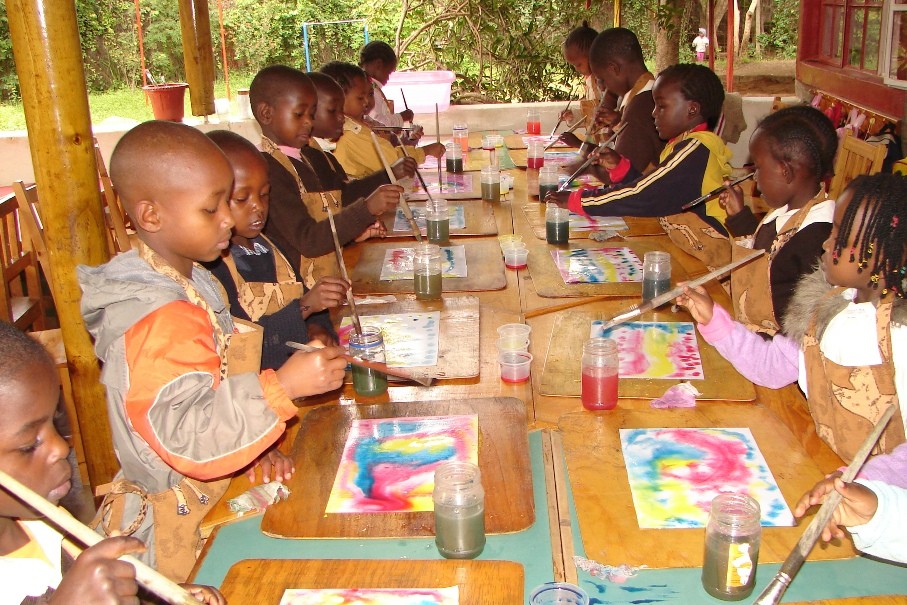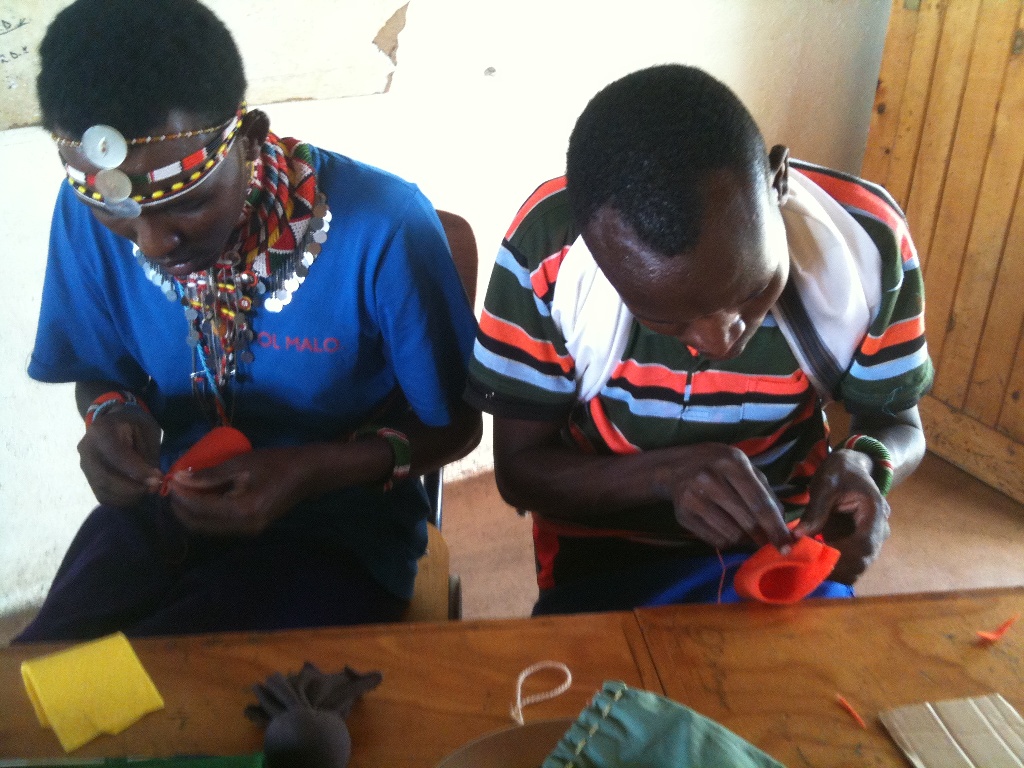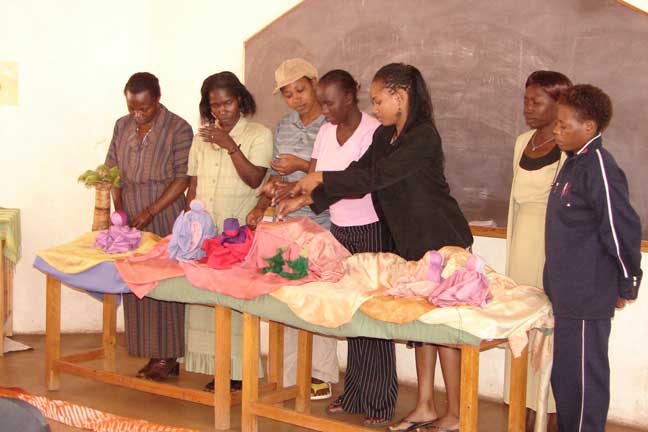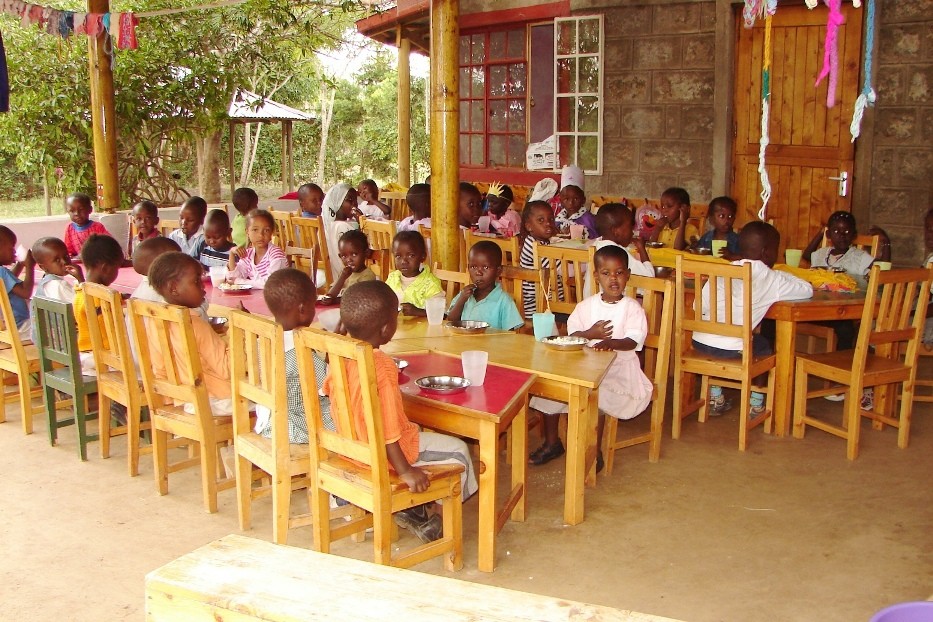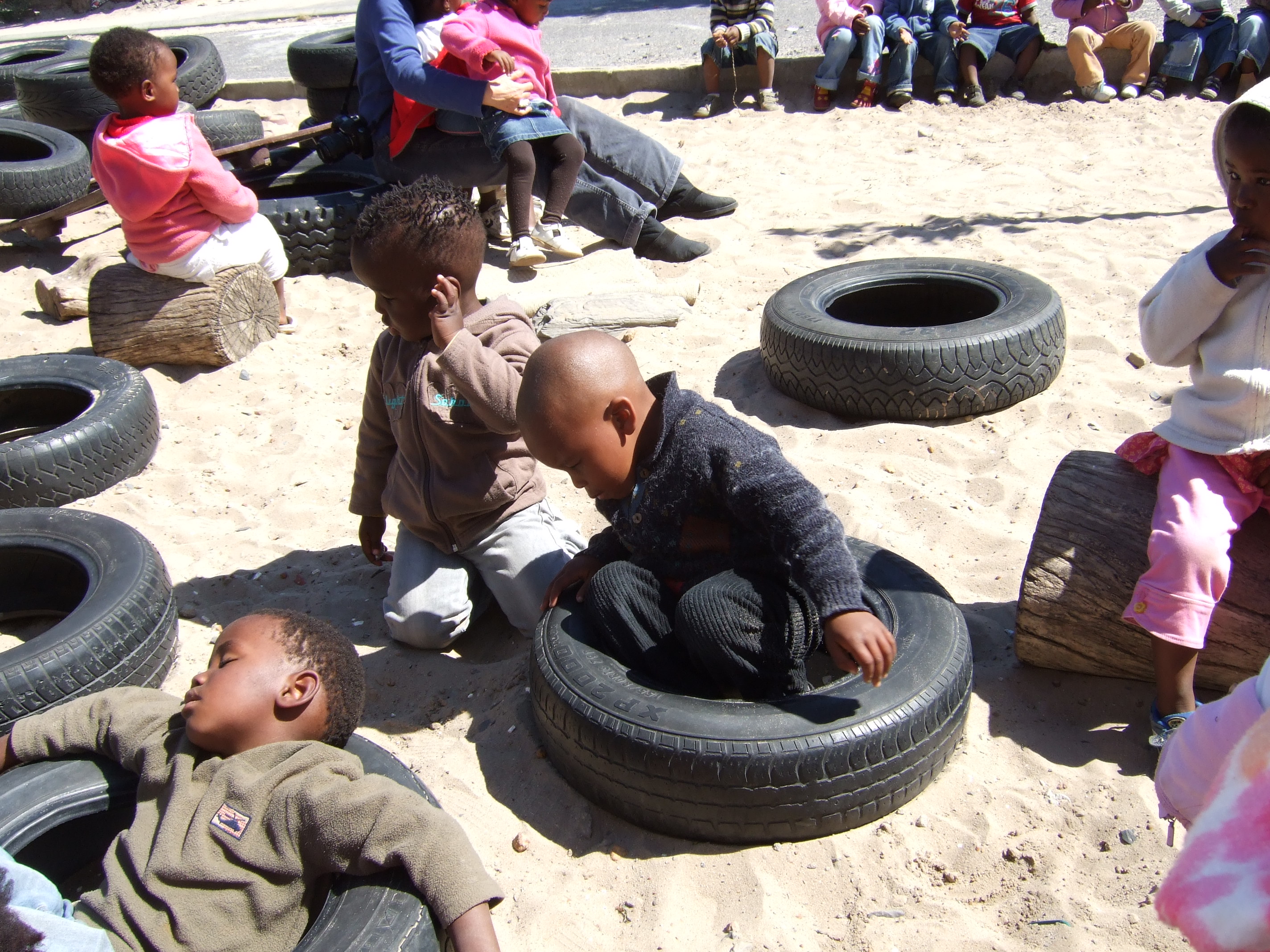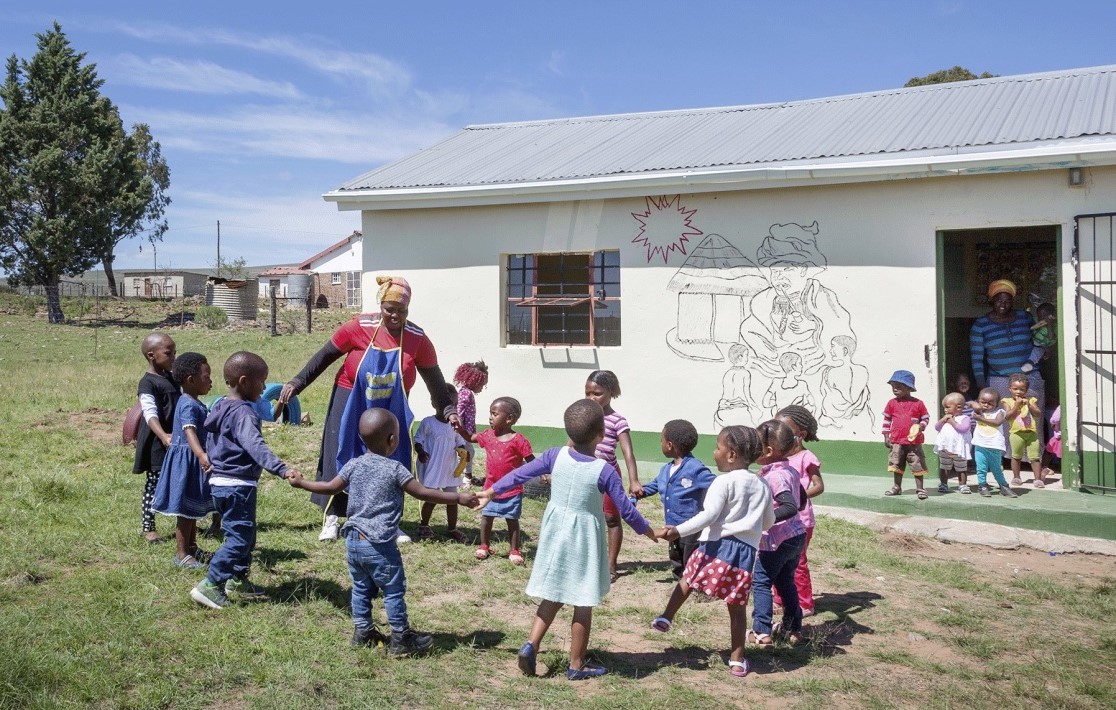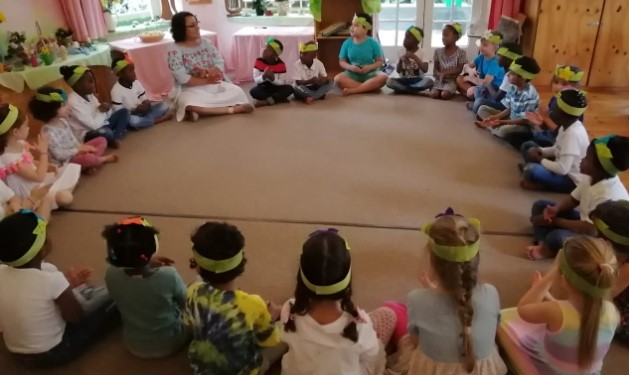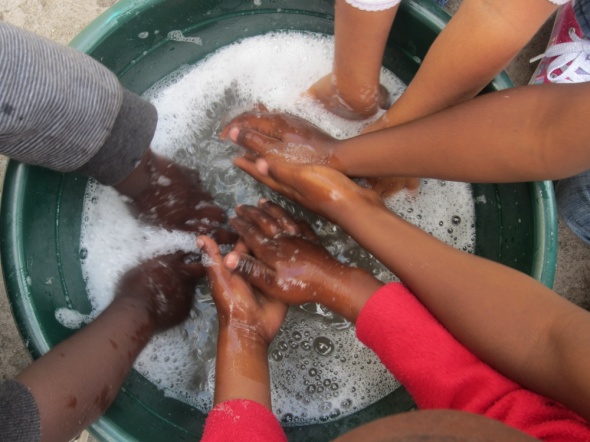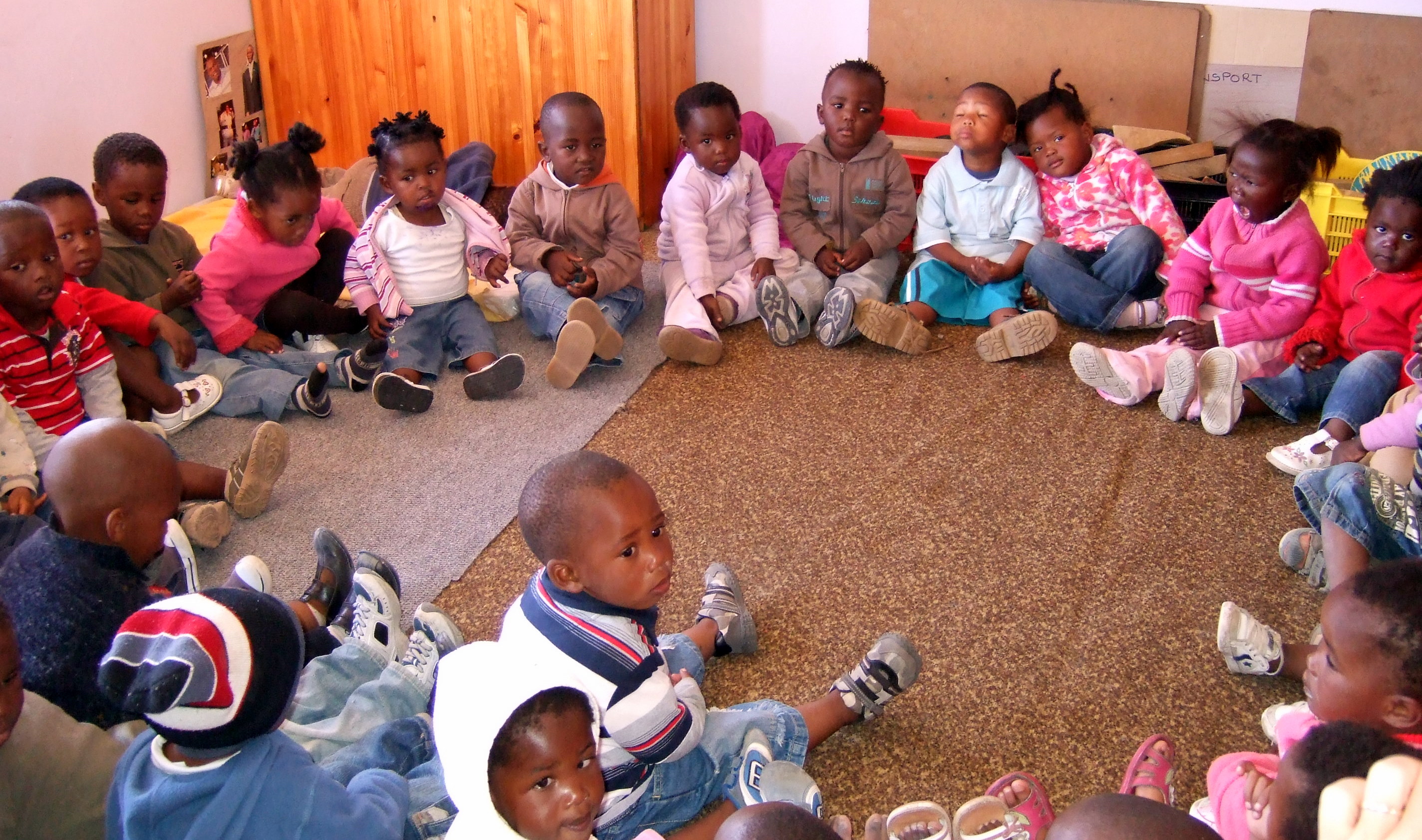All together, there are approximately 420 children cared for by about 40 early childhood educators. There are 15 additional kindergartens working with elements of Waldorf education. And there are also several “mother centers” offer parent-child groups and advice for parents. At the moment there are 35 students enrolled in the Waldorf teacher training course.Kindergartens that are members in the Waldorf Association are located in Prague, Semily, Turnov, Pisek, Rovensko p.Troskami, České Budějovice and Brno.
Collaboration and further training. Every year in July in the little town of Semily in the north of the Czech Republic, an unusual gathering of human beings takes place:
In the town hall, instead of finding the town council, one can find a group of colorfully dressed people from all over the Czech Republic, from Russia, Ukraine, Hungary, Romania, and sometimes from western Europe, coming together to hear lectures on subjects such as the meaning of free play and the significance of educating the will in order to educate the intellect. After lectures by Wolfgang Sassmannshausen, they walk through the inner city to the Waldorf School, where practical and artistic workshops take place. And then, before the studies continue, there is a small break with folk dancing in a city park or a round of discussions in a café.
These conferences are supported not only by IASWECE, the Ernst- Michael Kranich Foundation, and the Regional Association of Waldorf Kindergartens in North-Rhine Westphalia in Germany, but also by the mayor of Semily, who provides the rooms, and a regional government school supervisor, Růženka Janatová, who has supported the development of the Czech Kindergarten Association for many years. For the past two years, a professional development course for class teachers has taken place at the same time.
The Summer Academy in Semily has been an important annual event and a source of new impulses for the work of the Waldorf kindergartens since it was founded by Johannes Schneider in the 1990’s. The Summer Academy is also the final week of training for students completing their three-year part-time early childhood teacher training. Every year five to ten young people receive their diploma here.
In 2012 a second important event was added: the “Whitsun Conference” in Sluštice, an internal meeting of Waldorf educators working in member kindergartens who come together to deepen their work under the motto, „To Find Oneself in the Spirit, is to Unite Human Beings”. At this conference last year the thought arose that every kindergarten could become a “research center” working on a particular theme for one year (Fairy tales, Music, When and where and why do make compromises? What are the essential elements of Waldorf early childhood education?) and each kindergarten could then present the results of this research at the Whitsun conference the following year.
In addition to the Whitsun Conference there were also two weekend deepening courses during the school year with Cornelis Boogerd on the theme „The Etheric Body as a Pedagogical Instrument.”
In the Czech Republic, nearly all kindergartens are run by the government. On the part of the government supervisors there is not only the kind of sympathy as described in Semily, but there are also occasional difficulties, for example, the restriction that kindergartens cannot accept every child, but only those from a specific section of the city.
Tania Smolkova, Waldorf kindergarten teacher in Prague and Waldorf Early Childhood trainer. She is member of the IASWECE Council.
